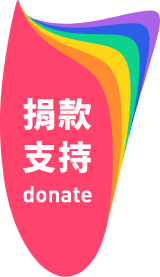ILGA Asia Participation Report: Advocacy Strategies for Gender-Diverse Communities from an East Asian Perspective
Date: 24–27 February 2025
Forum: ILGA Asia
Location: Kathmandu, Nepal
TEC Delegation: Executive Director Joyce Teng, Deputy Director Sebastain Lin, and Advocacy & Civic Engagement Project Manager Wong Wong
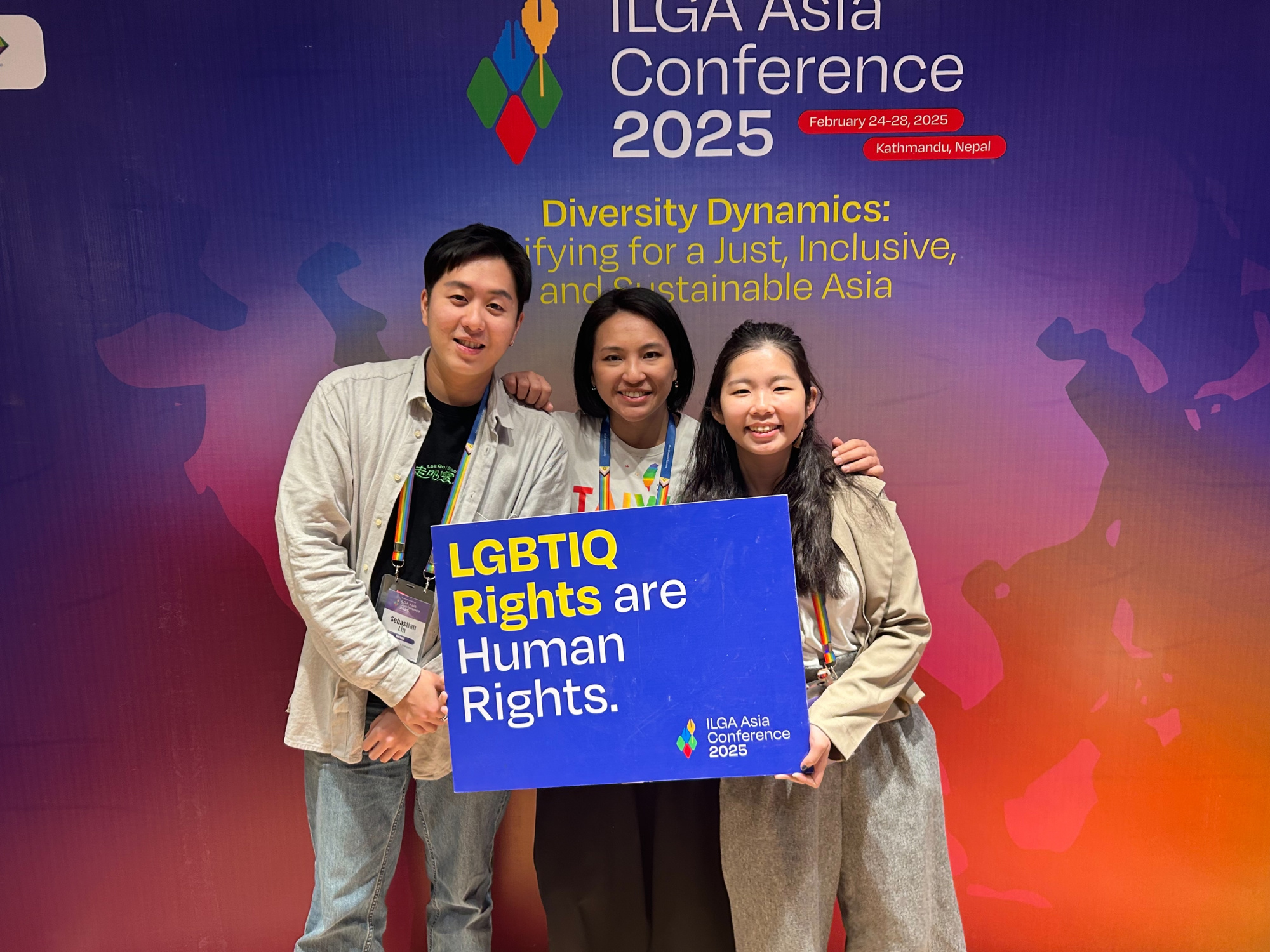
Every two years, LGBTIQ+ organizations from all across Asia come together to discuss, organize, and strategize for the promotion of human rights for gender-diverse people at the ILGA Asia Conference. It develops collective approaches based on lived experiences throughout the continent and fosters interregional alliances as a space driven by Asian countries and communities. As the first Asian country to legalise same-sex marriage, Taiwan plays a pivotal role in shaping regional strategies for equality. The Taiwan Equality Campaign (TEC) has long dedicated itself to sharing Taiwan’s experiences in marriage equality advocacy while also learning from other countries to co-develop contextualised and inclusive solutions. At this year’s ILGA Asia, TEC presented in two key sessions: “Fighting Against the Anti-Gender Movement in East Asia: The Practice of EA Alliance for Anti-discrimination” and “Building and strengthening collaboration with businesses: Strategies of engaging corporates in LGBTIQ+ movements.” We also participated in pre-conference discussions on marriage equality and anti-discrimination legislation, contributing Taiwan’s experiences while gaining valuable insights into the challenges and progress of other Asian countries.
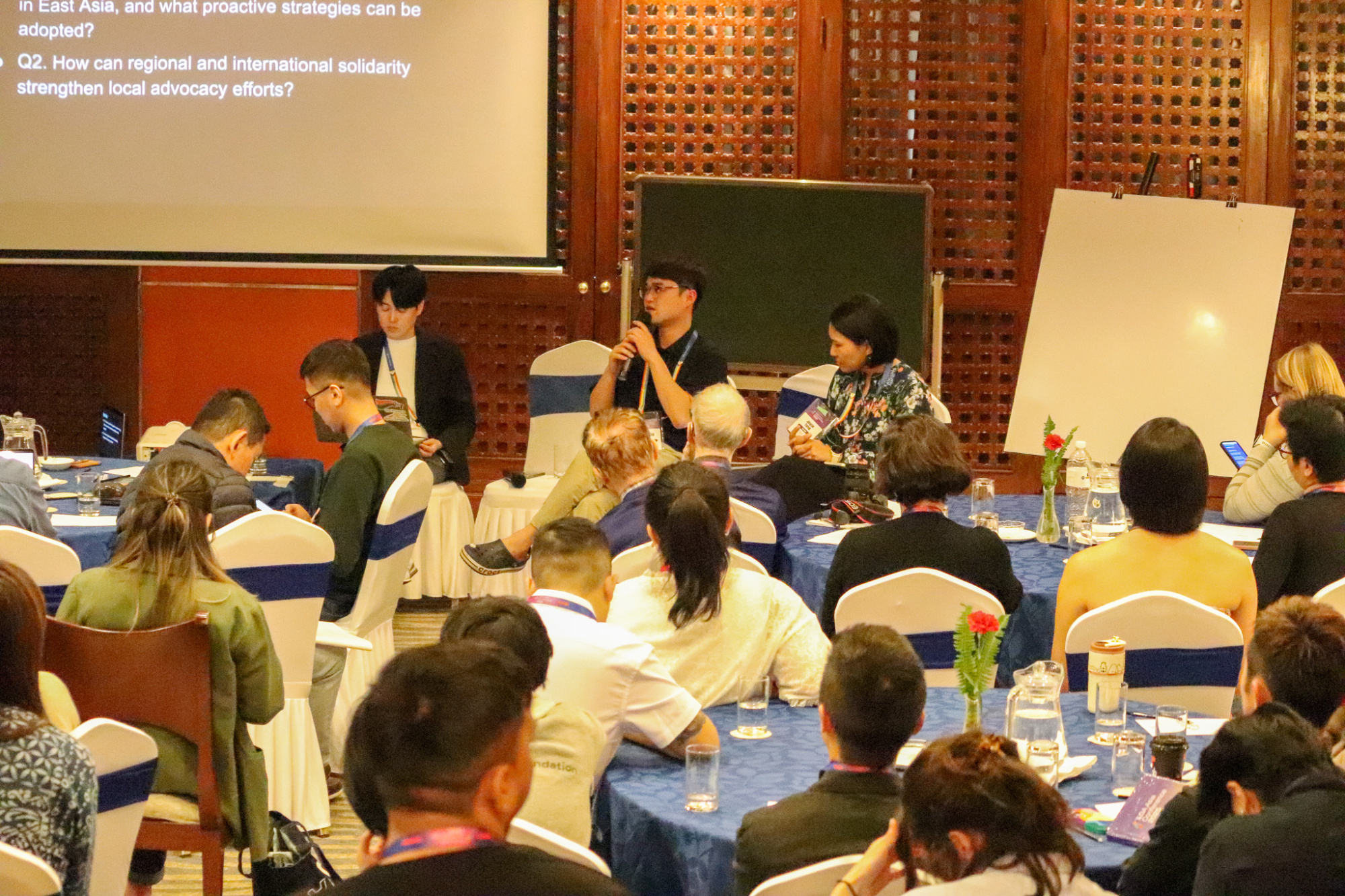
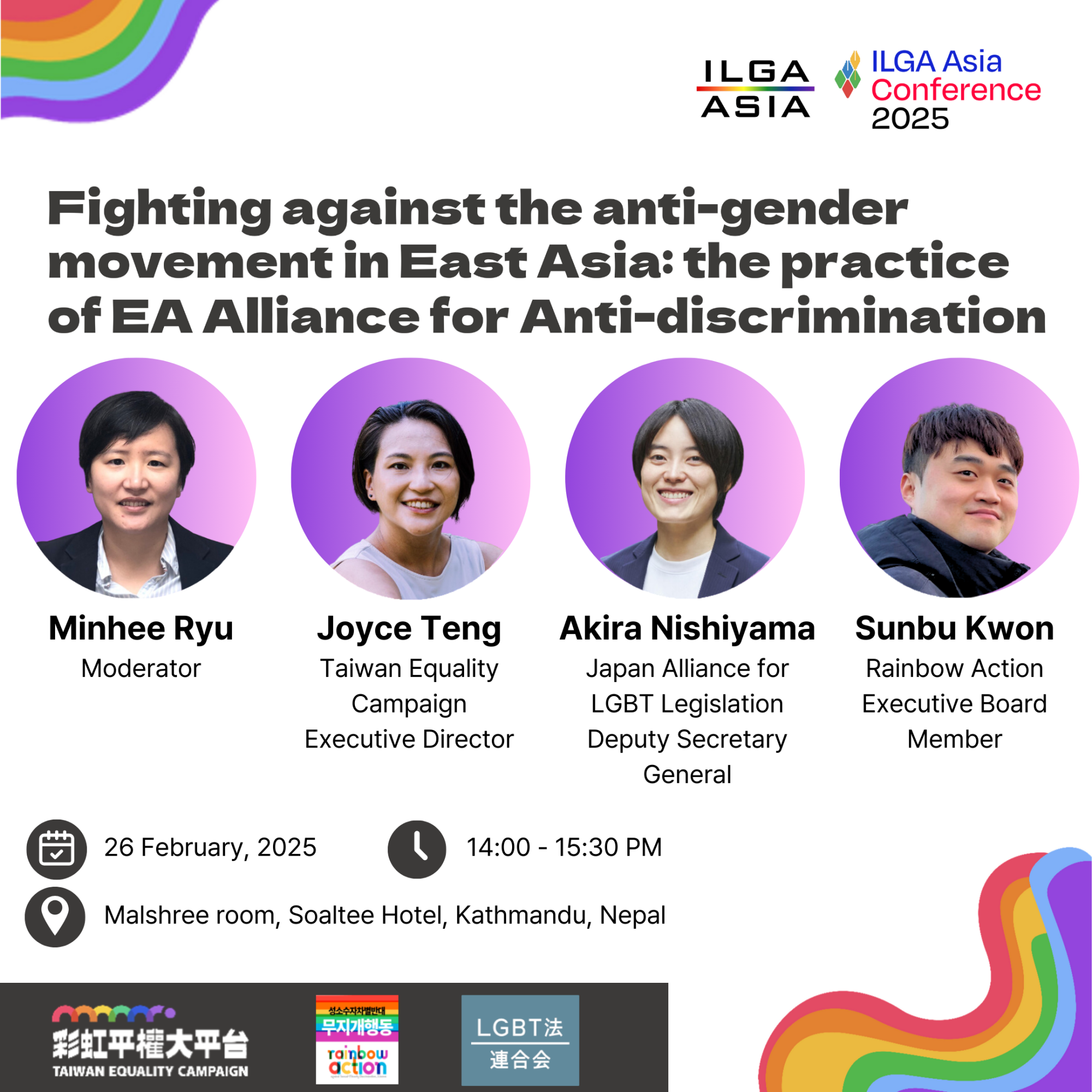
Fighting the Anti-Gender Movement in East Asia: Practice and Strategy of the East Asia Alliance
The East Asia Alliance for Equality and Anti-Discrimination Advocacy—formed by TEC (Taiwan), J-ALL (Japan), and Rainbow Action (South Korea)—is a collaborative network of NGOs with shared backgrounds and strategies for advancing anti-discrimination laws. These civil society groups joined forces through their common legislative advocacy efforts and now operate a functioning alliance with ongoing joint projects.The Alliance’s objectives are threefold: to strengthen visibility for East Asian LGBTIQ+ movements globally; to increase access to advocacy resources; and to conduct comparative research on anti-discrimination and equality legislation, public attitudes, and the lived experiences of gender-diverse communities across Taiwan, Japan, and South Korea. By analysing legal and social landscapes, the Alliance identifies opportunities for regional solidarity and joint advocacy initiatives. Regular meetings and joint participation in global forums allow for continuous exchange of information and experience.Although Taiwan, Japan, and South Korea are considered developed countries, they often face challenges in securing international human rights resources. Each movement also confronts unfinished business. By aligning efforts, the Alliance aims to amplify voices, articulate a distinct East Asian perspective, and collectively resist the global wave of anti-gender backlash.Our session at ILGA Asia sparked many thoughtful questions from fellow Asian delegates. Whether anti-gender movements throughout Asia have similar characteristics and whether experience sharing might result in more potent resistance tactics were two recurrent themes. Many cited transphobic incidents occurring across borders, yet some cases—such as controversies around trans people’s access to public bathhouses and hot springs—stem from cultural practices unique to East Asia. These culturally embedded dynamics illustrate why region-specific examples are essential when developing narratives and policies. "The globality increases with locality."—starting from local experiences, discussing shared and divergent realities, and collaboratively developing actionable strategies—this was the founding vision of the East Asia Alliance.
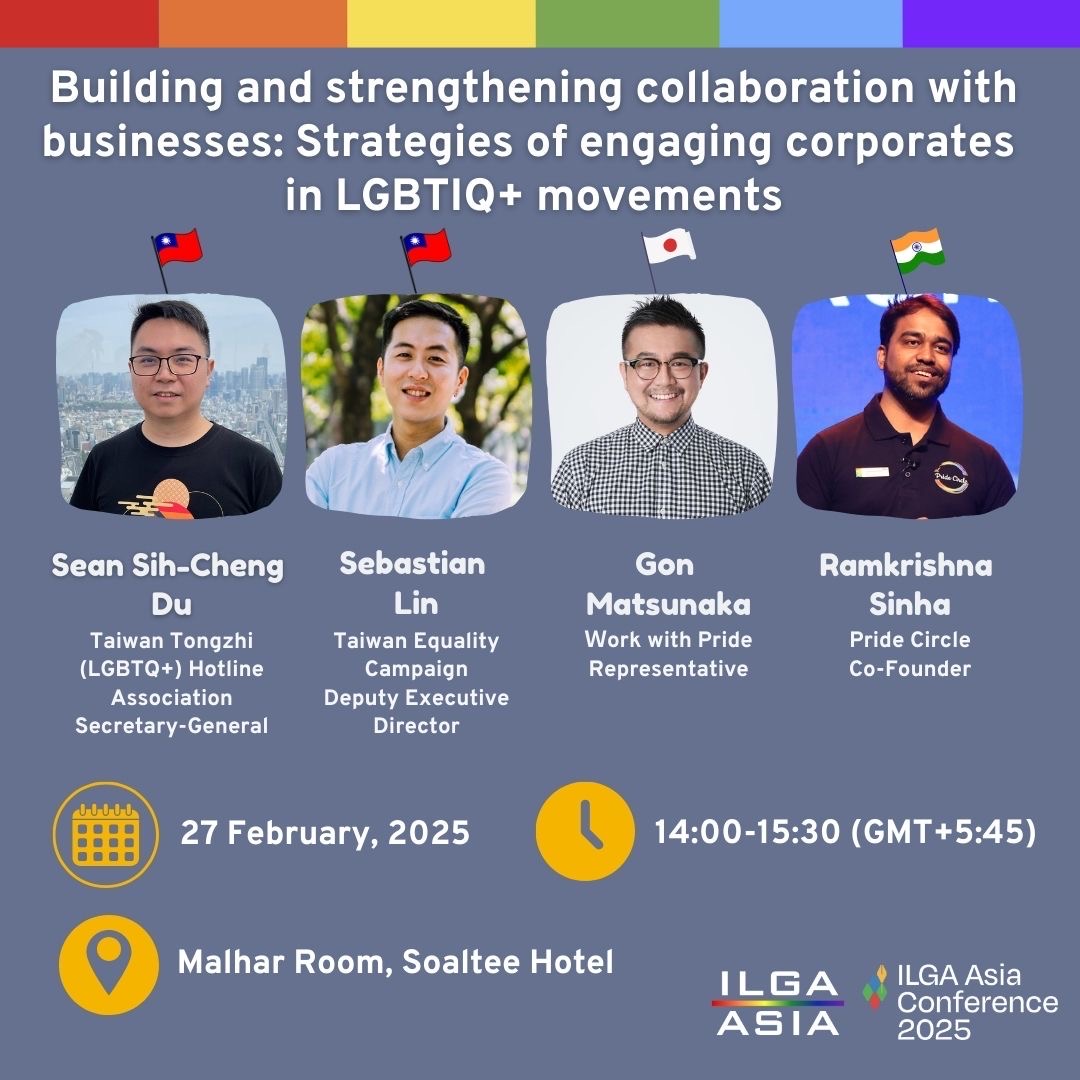
Co-Creating Resilient Partnerships: Strategies to Engage the Private Sector in LGBTIQ+ Advocacy
Workplace equality and corporate engagement have been key focus areas for TEC and the Taiwan Tongzhi Hotline Association. In 2023, we developed the Taiwan LGBTIQ+ Workplace Equality Index as a tool to encourage inclusive policies within businesses. This index provides both recognition and tailored recommendations to help corporations improve their internal diversity, equity, and inclusion (DE&I) practices.Our guiding principle is to foster mutually beneficial collaborations with companies—while continuing to educate businesses about gender diversity, advocacy groups must also understand corporate perspectives and language. Commercial success and equitable society can coexist; they are not mutually exclusive.This approach resonated with international participants, sparking a productive exchange of ideas. A difficult but crucial topic was put forward by one Vietnamese delegate: What should advocacy organizations do if a business has a high DE&I score but commits other human rights violations? Others asked how to identify and address corporate pinkwashing, how to educate corporations unfamiliar with inclusion principles, and how to integrate diversity into core business policies.The conversation focused on developing a shared language for engagement, aligning principles, and showcasing the advantages of diversity for organizations. During the event, many people shared and expressed gratitude for the tools we have created, including metrics for assessment, engagement tactics, and resource development.
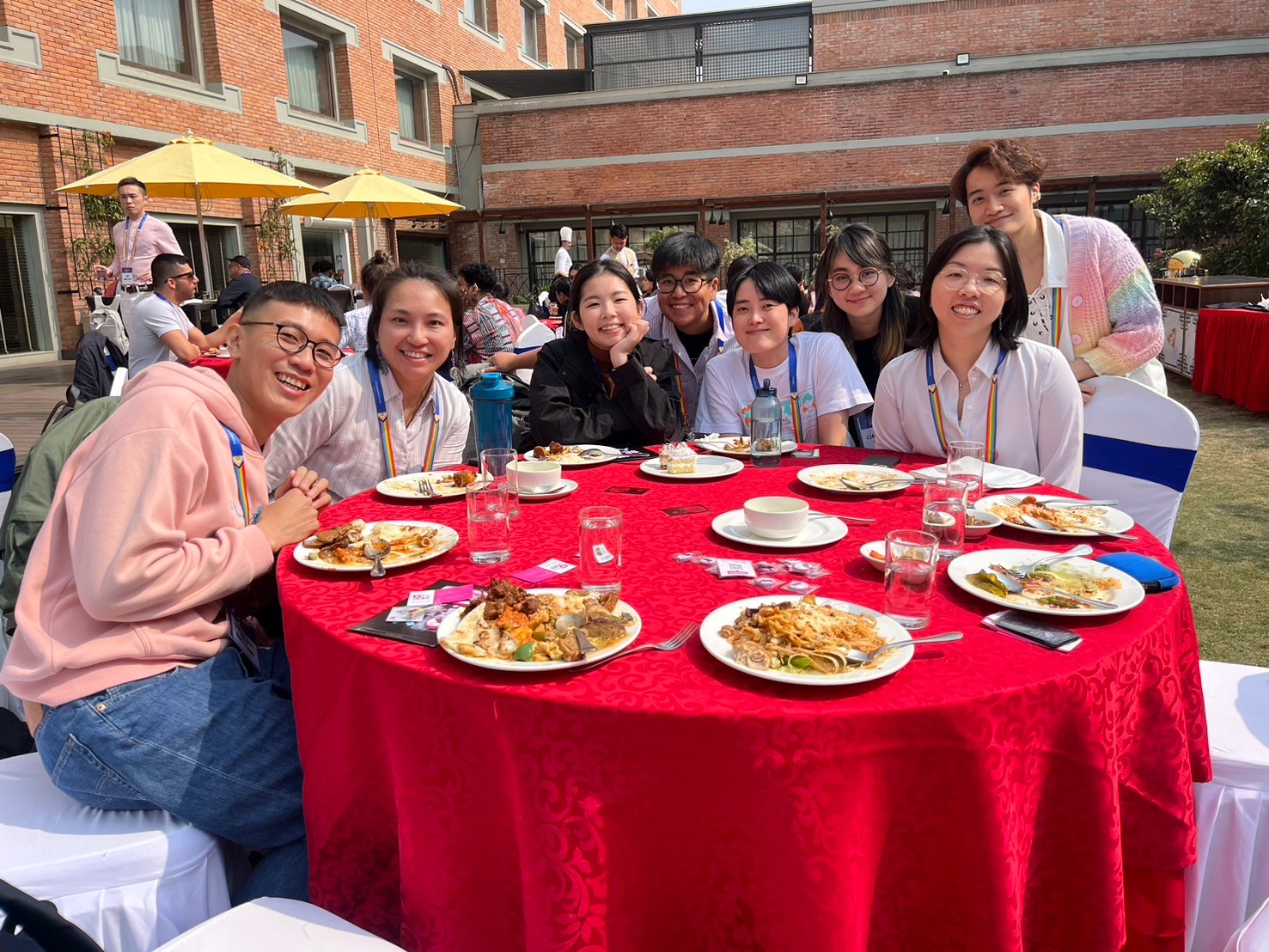
Let the Rainbow Shine from Taiwan to the World: Local Experience, Global Solidarity
For the third time, TEC took part in ILGA Asia this year. We shared our perspectives on Taiwan's social climate, marriage equality, and changing position within the regional and global LGBTQI+ movements. While the varied realities of Asia create a particularly rich environment for mutual learning and exchange, Taiwan's advocacy strategy for marriage equality gives other nations lessons for the future.Prioritizing regional leadership, ILGA Asia makes sure that the complete range of national, gender, and political experiences are represented on its board. Joyce Teng, the executive director of TEC, was chosen to serve as an East Asian women's representative on the ILGA Asia Board, expressing Taiwan's viewpoint to the organization's top management.One of the key post-conference objectives for TEC, the East Asia Alliance, and our international allies is to figure out how to maintain and develop relationships, given Taiwan's ongoing struggles with the global rollback of women rights and diminishing international resources. In order to protect our communities, fight conservative backlash, and jointly build robust structures for the future, we have to collaborate together.

